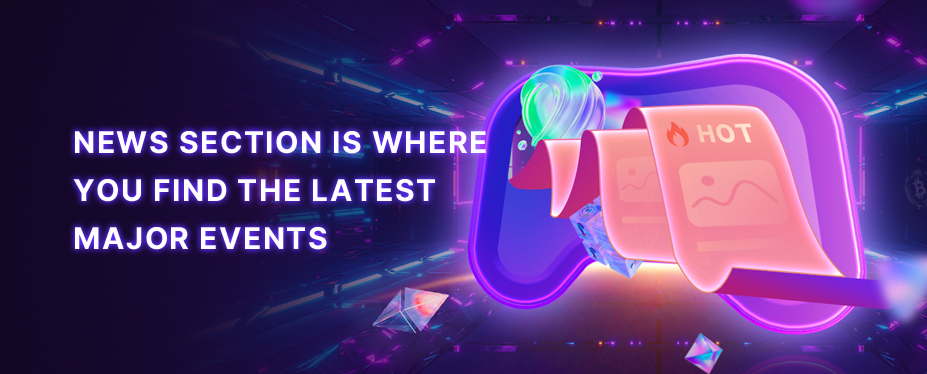Crypto and AI: Save Us From the Hype

(Verena Yunita Yapi/Unsplash, modified by CoinDesk)
We’ve seen this before. A radical technological breakthrough spins off applications that promoters insist will revolutionize whatever industry they happen to be targeting. Breathless conferences promise that nothing will ever be the same again. Funding floods in at back-of-the-envelope valuations based on exponential growth. I could be talking about the crypto circuit circa 2016-17. But today, I’m talking about artificial intelligence (AI).
It’s hard to not be mesmerized by the AI attention is getting, and perhaps motivated by the inflated promises. The impact, even at this early stage, is exciting: The ability to interface with computing power using natural language is a massive productivity unlock, and the creativity boost through almost instant images and prose is both helpful and entertaining. And that’s just scratching the surface.
Noelle Acheson is the former head of research at CoinDesk and Genesis Trading. This article is excerpted from her Crypto Is Macro Now newsletter, which focuses on the overlap between the shifting crypto and macro landscapes. These opinions are hers, and nothing she writes should be taken as investment advice.
But the hype we’re hearing around AI now is reminiscent of the hype we heard around crypto and blockchain years ago. That exuberance was misplaced, as is today’s. The impact of crypto and blockchain is real and will continue to evolve; it’s just not what some tried to sell the public in the early days. The same will happen with AI – the impact will be considerable, but the hype is setting the field up for disappointment.
Earlier this month, venture capital firm Andreessen Horowitz (a16z) published a document on the topic, written by Marc Andreessen himself. He’s smart – I thought his January 2014 New York Times article titled “Why Bitcoin Matters” was an excellent meditation on how the technology combines with market forces, which laid out the potential at hand while not ignoring the risks.
But his latest AI piece has many cringe moments.
Here are some choice quotes:
Am I the only one that sees the possibility that AI could get involved in everything we care about somewhat dystopian? And what does he mean by “better”? Better for whom?
Oh my. This is scary.
I’m crying.
The internet was going to do that by moving warfare online. That didn’t work out, and let’s fervently hope no authority walks up to red lines thinking it's OK because there will be fewer deaths.
Echoes of blockchain buzz
Other claims I’m hearing attributed to AI that echo those bestowed upon blockchain and even the internet back in the day:
AI will "permanently disrupt" education. The internet arguably did this, but are people happy with the state of education these days?
AI will predict medical problems before they happen. Obviously, this would be amazing, but would better predictions improve diagnoses, or could they introduce more risks? If AI-powered medicine can save even one life then I’m all for it, but I worry about the general anxiety cost and the missed diagnoses because the predictive algorithm didn’t flag anything.
AI can help fight climate change. Faster information processing could help focus global prevention efforts. But what about all those guzzling data centers?
AI combined with nuclear fusion will make us a super-species. And facilitate intergalactic travel. No comment.
We will never have to worry again. This is from Sam Altman, the CEO of OpenAI.
I could go on…
Perhaps I sound like a crypto enthusiast who hates the idea of another hot technology stealing our ecosystem’s thunder. Far from it – I hated the early-stage crypto hype as well, the promises that “blockchain will change everything!” and that “everything will be tokenized!” (And yes, I know that we’re still hearing some of these claims.)
Rather, I’m excited about AI. I see the problems as opportunities, and am looking forward to experimenting more over the summer to see how it can help with my newsletter.
Even more, I’m supportive of the migration of VC [venture capital] attention. You’ll probably have seen some of the tweets, quotes and interviews of prominent Silicon Valley representatives saying things like “If you’re in crypto, pivot to AI.” By all means, those venture capitalists that chase the latest technology should definitely do that. This would significantly reduce funding in the crypto ecosystem, but the crazy money that was being flung around a couple of years ago led to unrealistic valuations, unsustainable structures and some atrocious behavior.
A tighter funding environment will hopefully mean that startups or later-stage operations that do get funding will have a stronger product-market fit, run a leaner operation and as a result have a better chance of survival while not burning through easy VC cash.
The AI field has its pick of hypesters as well: the techno-utopians convinced that technology brings out our better natures, the visionaries who believe funding should be based on faith rather than utility, the consultants who want to frighten you into paying for their services.
If AI refuses the “hot” funding, plugs its ears to the hyperbole and casts off those only in it for the money, the crypto ecosystem will be stronger for it. The two technologies have their affinities. Blockchain promises will become more focused. The expected value can get more real.
The crypto ecosystem will benefit from the potential overlaps with AI, and there are many. These include easier coding for blockchain-based apps, decentralized storage for vast pools of data, shared incentives for sustainable power solutions for data centers are just the tip of an exciting pyramid of possible synergies.
And crypto has a lot to offer AI. In particular, I venture applying lessons learned from the crypto hype could save founders and developers working with artificial intelligence from venturing into dead ends and overstatement. Vast opportunity is exhilarating, and if we don’t reach high, we’ll never know how high we can go. But too many broken promises weakens credibility, disillusions investors and gives detractors plenty of fuel.
The AI field probably has to go through its own trial by fire, though, and learn this for itself.
I applaud genuine excitement for the motivation it spreads and the hope it delivers. My concern is when that excitement becomes opportunistic and manipulative. Those who care about our collective future, with all the solutions and risks technology can bring, deserve better.




